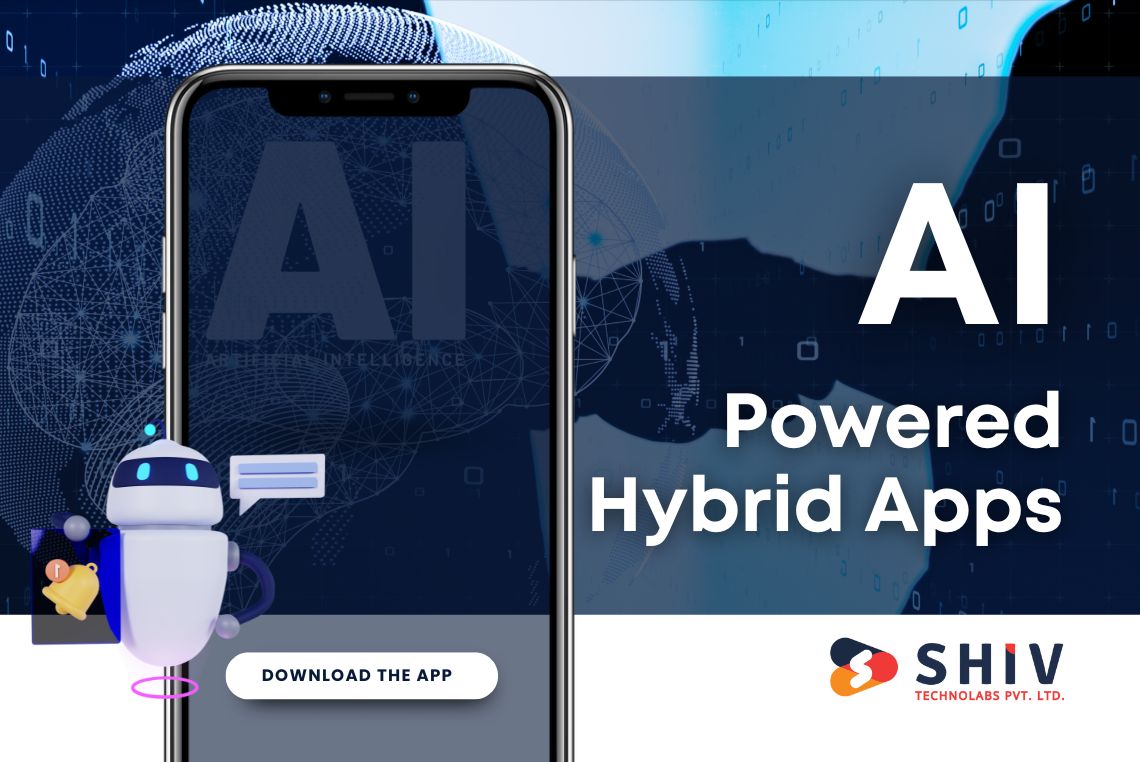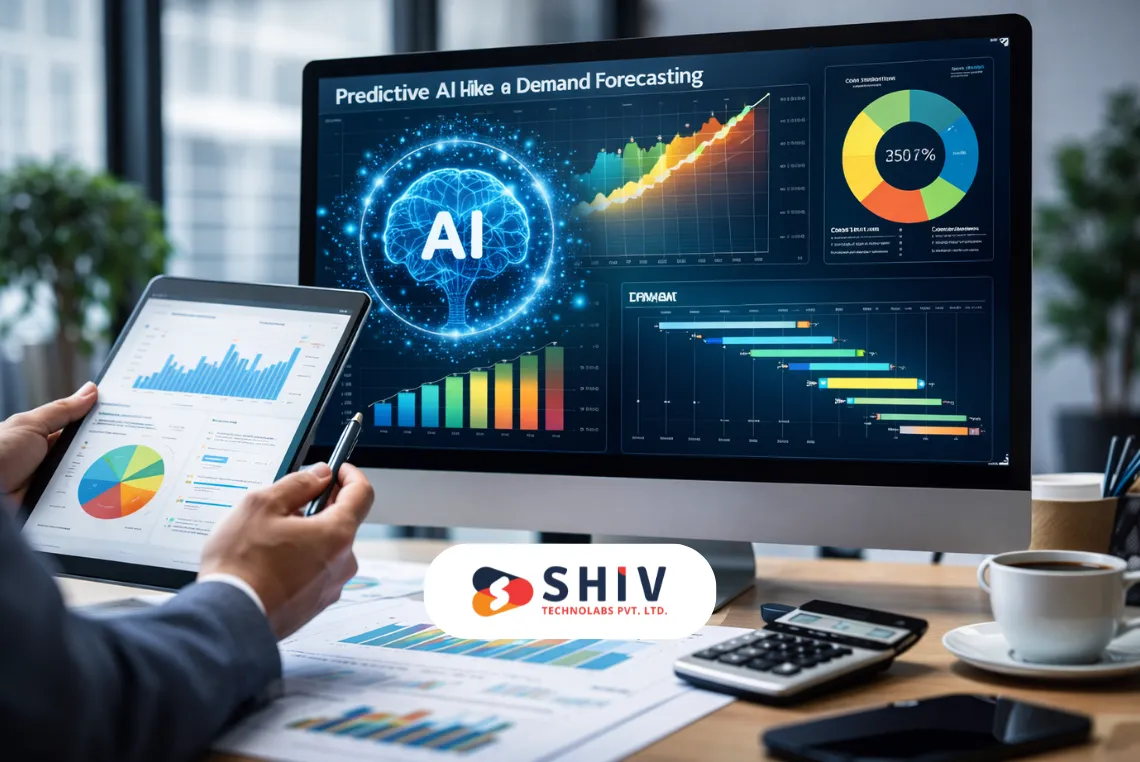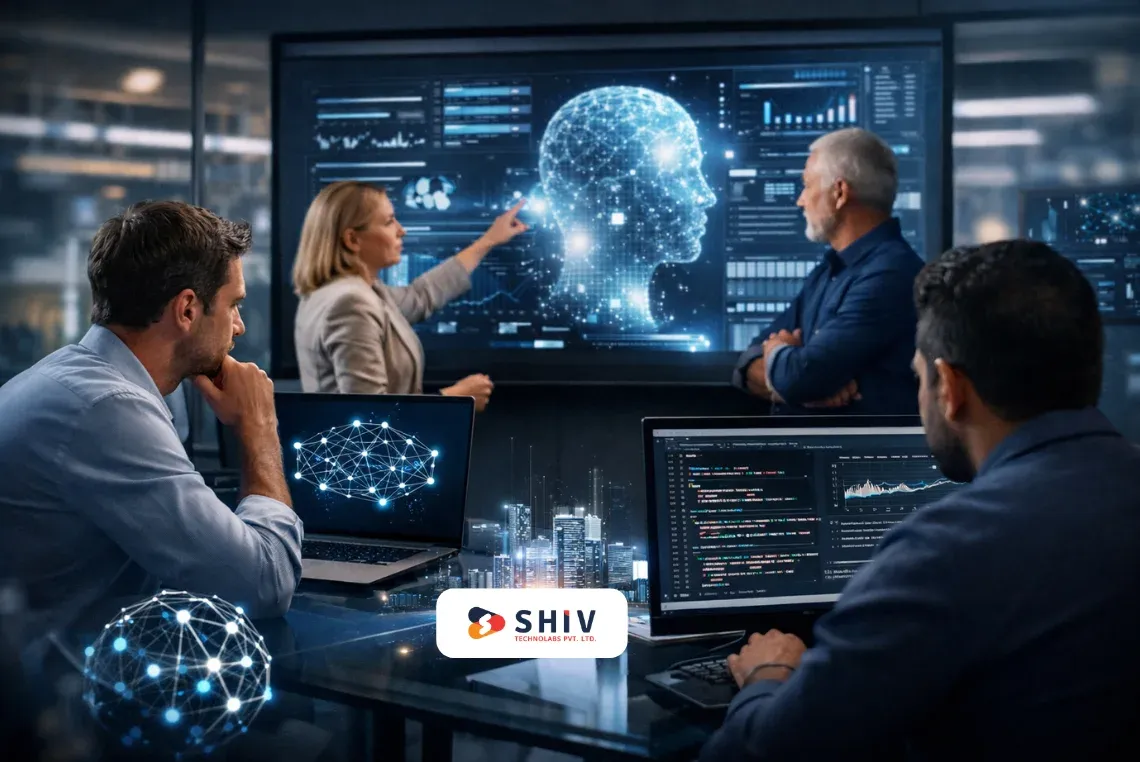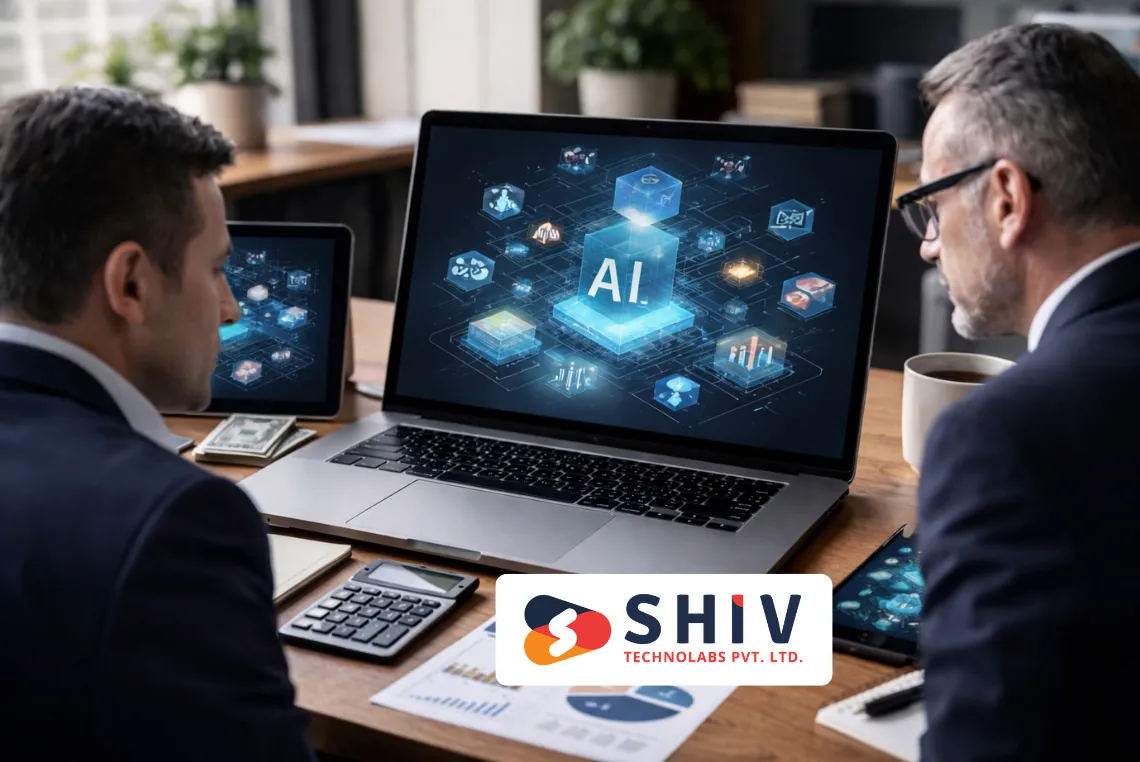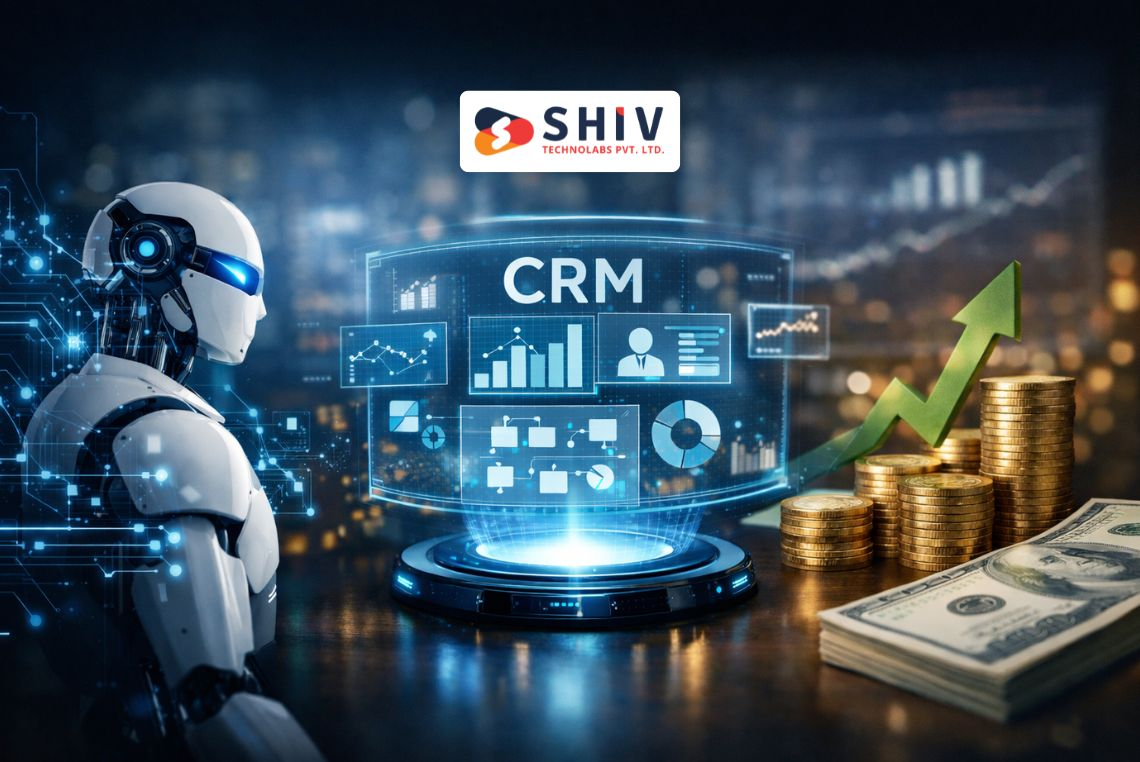Table of Contents
Artificial Intelligence (AI) and hybrid app development mark an exciting moment in digital history. By incorporating AI into hybrid apps, businesses can build powerful tools that combine the best elements from web and native apps with AI’s intelligent solutions to create apps with enhanced functionality and performance as well as open up new avenues of innovation resulting in more efficient and effective solutions.
AI in Hybrid App Development
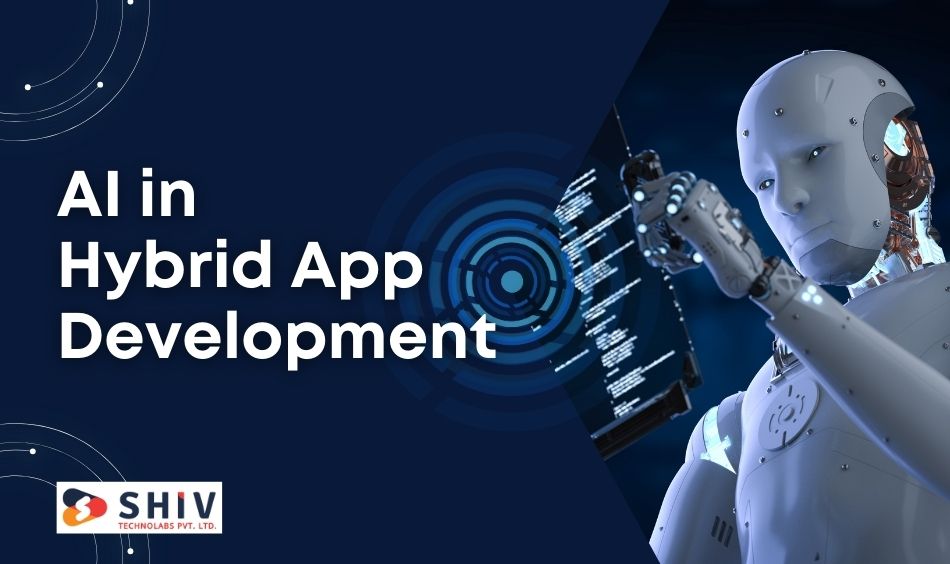
Businesses looking to reach a wider audience with one codebase that works across multiple platforms often opt for hybrid apps as a cost-effective and flexible development option. Hybrid apps combine features from both native and web apps into one cost-efficient solution for developers; as demand for more intelligent and responsive applications continues to increase, AI’s role has only grown more significant in hybrid app development.
AI adds an exciting dimension to hybrid apps, giving them the capability of learning from user interactions and anticipating behaviors and adapting quickly to changing needs. This capability is especially crucial in today’s fast-paced digital environment where users expect personalized and responsive experiences from hybrid apps; by including AI in these hybrid apps more effectively they can meet this expectation more efficiently, making them more appealing both to users and businesses alike.
How AI Enhances User Experience in Hybrid Apps?
One of the greatest advantages of artificial intelligence (AI)-powered hybrid apps is their ability to improve the user experience. AI features like natural language processing (NLP), machine learning (ML), and computer vision make apps more intuitive and responsive to users’ needs than ever before.
1. Personalization: AI can comb through user data to analyze preferences and behaviors, enabling apps to deliver targeted content, features, recommendations, and apps that create more of an emotional bond between app users and its content; increasing engagement rates as well as retention rates.
2. Intelligent Interactions: By using NLP in hybrid apps, they are better able to comprehend and respond to user inquiries in a more natural, human-like fashion. Being able to interpret human language enhances interactions between user and app and makes the experience more pleasurable for all involved.
3. Predictive Analytics: Artificial intelligence algorithms can analyze past user behavior to predict future actions. This capability enables apps to anticipate user needs and offer timely suggestions or actions – further increasing its usefulness and relevance for its target users.
4. Automation: AI can automate repetitive tasks within an app, such as data entry, content curation or customer support. This not only saves users time but also increases efficiency of the overall app experience.
Also Read:- How to Create an AI App: A Complete Step-by-Step Guide
Key AI Technologies Influencing Hybrid App Development
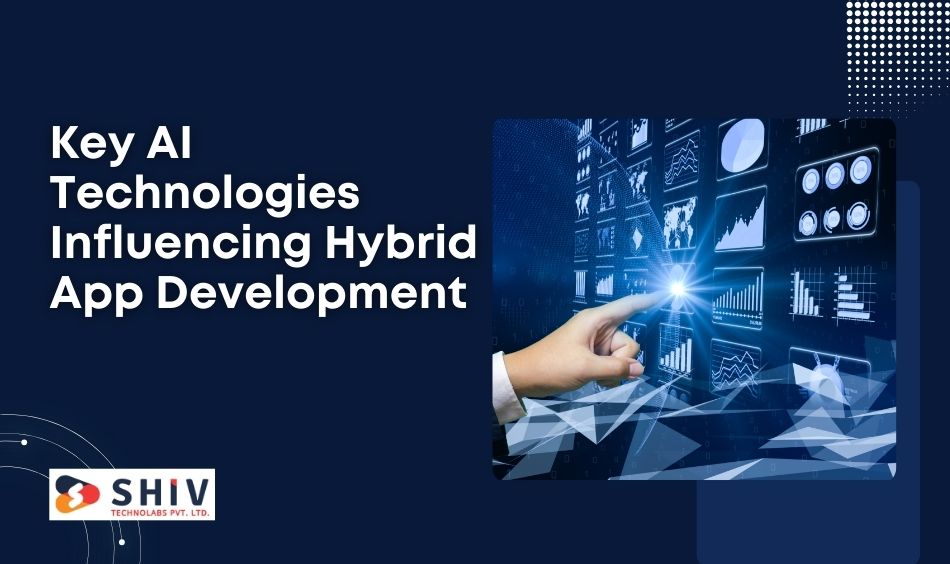
Artificial intelligence technologies are playing an integral part in revolutionizing hybrid app development. When integrated into apps, these technologies create smarter and more efficient apps.
5. Machine Learning (ML): Machine learning algorithms enable apps to automatically learn from data and improve over time without being explicitly programmed. When used within hybrid apps, machine learning can improve features like recommendation engines, search functionality, and user segmentation.
6. Natural Language Processing (NLP): Natural Language Processing is the ability of applications to recognize and respond to human speech, making this technology vital for creating intelligent chatbots, voice assistants, and other features which require deep comprehension of user queries.
7. Computer Vision: Computer vision technology enables apps to analyze visual data like images and videos for processing and analyzing purposes. This capability is necessary for features like facial recognition, object detection and augment reality experiences (AR).
8. Reinforcement Learning (RL): Reinforcement learning is a branch of machine learning (ML) focused on training models to make decisions based on trial-and-error, making decisions at times. Reinforcement learning can help optimize user experiences in hybrid apps by continuously learning from user interactions and adapting its behavior accordingly.
9. AI-Powered Analytics: AI-powered analytics tools offer valuable insight into user behavior, app performance, and market trends – offering data that allows us to make better informed decisions regarding app development strategies, marketing initiatives and user engagement tactics.
Benefits of AI Integration in Hybrid App Development
Integrating AI Into Hybrid App Development Integrating artificial intelligence (AI) into hybrid app development offers numerous advantages that can substantially increase its performance, usability and overall success.
- AI-Driven Personalization and Interactions: AI-driven personalization and interaction strategies create an engaging user experience, leading to higher satisfaction rates and retention rates for apps that understand user preferences and deliver relevant content, keeping their users coming back for more.
- AI algorithms: It can optimize various aspects of an app’s performance, from load times and resource utilization, all the way through to user experience and ultimately user satisfaction. These optimizations ultimately result in faster, more responsive apps which deliver a superior user experience.
- Cost-Effective Development: AI’s automation of certain development processes enables more cost-effective hybrid app creation for small and midsized businesses looking to produce quality apps without breaking their budgets.
- Scalability: AI technology helps hybrid apps scale more effectively by automating tasks and improving performance. As user loads increase and requirements shift over time, AI helps manage them without compromising quality or user satisfaction.
- Data-Driven Decision Making: AI-powered analytics offer invaluable insights that can inform app development, marketing strategies and user engagement strategies. By taking this data-driven approach to decision making, real world information rather than guesswork drives decisions forward.
# Challenges and Solutions in Developing AI-Powered Hybrid Apps
While AI-driven hybrid apps present many advantages for developers, there may also be obstacles during their creation process that need to be overcome for successful outcomes. Recognizing these difficulties and creating effective solutions is paramount in producing successful AI-driven hybrid apps.
- Data Privacy and Security: Artificial intelligence requires access to large volumes of data in order to function, leading to serious concerns over data privacy and security. Developers must implement robust safeguards to protect user data and comply with regulations such as GDPR.
- Solution: Implement encryption, anonymization, and other security practices to safeguard user data. Likewise, ensure your app’s privacy policy is transparent and adheres to relevant regulations.
- Integrating AI technologies: It can be complex when dealing with multiple platforms and frameworks. Developers must ensure that AI components work seamlessly across all platforms.
- Solution: Utilizing cross-platform AI tools and frameworks designed specifically for hybrid app development will make integration much simpler while guaranteeing that AI features perform consistently across platforms.
AI algorithms can be resource-intensive, which could affect an app’s overall performance. Developers must ensure the need for AI-powered features doesn’t compromise its overall viability.
- Solution: Optimize AI algorithms for mobile devices and leverage techniques like edge computing to process data locally on each device instead of solely relying on cloud processing.
- User Experience Design: Integrating AI into an app can present new user experience challenges, including making AI-driven features intuitive and user-friendly. Developers must carefully craft the user interface to accommodate AI features.
- Solution: Utilizing user testing can help identify potential usability issues and refine an app’s design based on feedback from its users, with an eye towards creating an experience that integrates AI features naturally into user interactions.
# Best Practices for Integrating AI Technologies in Hybrid App Development
In order to reap maximum advantages from AI in hybrid app development, developers should abide by specific best practices that ensure the successful integration of these technologies.
- Starting With Clear Goals: Before beginning to integrate AI, clearly outline any problems or features you wish to improve or solve with it. A set goal will guide the development process and assist with selecting suitable technologies for your app.
- Select AI Tools That Comply With Your Hybrid App Development Environment: Select AI tools and frameworks compatible with your hybrid app development environment, taking into account factors like ease of integration, scalability and support across platforms.
- Focus on User Experience: AI features should enhance user experiences rather than complicate them. Design the app’s interface keeping in mind the needs and preferences of its target user base so that AI features are intuitive and simple to use.
- Test Thoroughly: Artificial intelligence algorithms may behave unexpectedly when exposed to real-world conditions, so comprehensive testing is vital in order to detect and address potential issues before the app is made available for user consumption.
Once your app is live, closely track its performance and user feedback in order to use this data as a basis for further refining and refining its AI features over time.
The Future of AI-Driven Hybrid App Development
As AI continues to advance, its impact in hybrid app development should become even greater. We anticipate future trends of AI-powered hybrid apps being:
AI will enable even finer levels of personalization, enabling apps to tailor content and experiences based on real-time user data.
- Voice and Gesture Recognition: As NLP and computer vision technologies advance, hybrid apps will increasingly incorporate voice and gesture recognition features for more natural and intuitive interactions between humans and computers.
- Advanced Predictive Analytics: Artificial intelligence algorithms will become better at anticipating user behavior, enabling apps to anticipate needs and provide proactive solutions.
- AI-Driven Automation: Artificial intelligence-powered automation will become ever more sophisticated, handling more intricate tasks and decisions with little human involvement required.
- Integrating IoT: Hybrid apps will increasingly integrate with IoT devices, using AI to process and analyze data from connected devices in real time.
AI in hybrid app development is more than just a trend; it’s an integral step toward creating smarter, more user-friendly applications. By adopting AI technology into their apps, developers can push the envelope of what hybrid apps can achieve, ultimately providing greater experiences to end users while adding value for businesses. As AI continues to advance, its influence over hybrid app development will only become stronger, making AI an integral consideration for any forward-thinking developer.
Partnering with the right development team to produce AI-powered hybrid apps that fuse innovation and efficiency is paramount to their success. At Shiv Technolabs, we specialize in cutting-edge AI/ML development services in Canada – we guarantee your hybrid app not only meets but exceeds your expectations while contributing to its success in today’s increasingly competitive digital environment. Let our experienced team help bring your AI-driven app vision into fruition!

